
The Art of Community Now Available
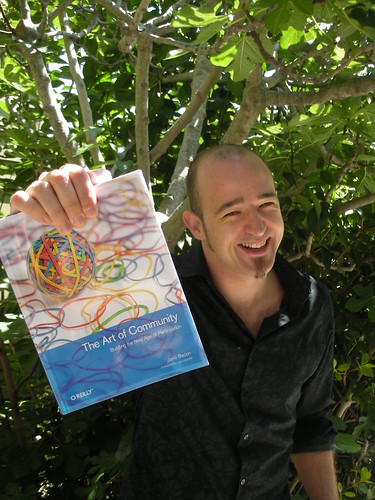
After months of writing, editing, copy-editing, reviews and production, I am pleased to announce the general availability of **The Art of Community**! The book is printed and on its way to bookstores – it may take a few days for it to hit your local bookstore or regional online store.
This is a book that I have been working on since November, designed to provide a solid guide to building, energizing and enabling pro-active, productive and enjoyable communities. The book covers the major areas of community leadership, distilling a set of best practices and experiences, illustrated by countless stories, anecdotes and tales.
While the book draws from my experience in Open Source and cites the experience of others in other communities, the book is *not* explicitly designed for technical communities and the content is applicable to any community of any size. This has been a deliberate decision: I am really keen that anyone from a knitting group to a neighbourhood watch group to a political activism group to a globally distributed Open Source project can get some real value from the book.
Throughout the eleven chapters and 360+ pages the book covers the major elements of building strong community:
* **Foreword by Leo Laporte** – emmy award-winning broadcaster and founder of the TWiT Network provides a thoughtful foreword, complete with his expected wit and repartee.
* **Preface**
* **Chapter 1** – *The Art of Community* – We begin the book with a bird’s-eye view of how communities function at a social science level. We cover the underlying nuts and bolts of how people form communities, what keeps them involved, and the basis and opportunities behind these interactions.
* **Chapter 2** – *Planning Your Community* – Next we carve out and document a blueprint and strategy for your community and its future growth. Part of this strategy includes the target objectives and goals and how the community can be structured to achieve them.
* **Chapter 3** – *Communicating Clearly* – At the heart of community is communication, and great communicators can have a tremendously positive impact. Here we lay down the communications backbone and the best practices associated with using it.
* **Chapter 4** – *Processes: Simple Is Sustainable* – We then move on to focus on putting the facilities in place for your community to do great things. In this chapter we build simple, effective, and nonbureaucratic processes that enable your community to conduct tasks, work together, and share their successes.
* **Chapter 5** – *Supporting Workflow with Tools* – We continue our discussion of community facilities to build workflows that are driven by accessible, sensible, and rock-solid tools that enable your contributors to do great work quickly and easily.
* **Chapter 6** – *Building Buzz* – With a solid foundation in place, we move on to build excitement and buzz around your community and encourage and enthuse every man, woman, dog and pony to get involved and participate.
* **Chapter 7** – *Measuring Community* – Although many consider community hand-wavey and unmeasurable, this chapter confronts the myth and guides you in tracking, monitoring, and otherwise measuring the work going on the community so it can be optimized and simplified.
* **Chapter 8** – *Governance* – Our next stop is the wide-ranging and seemingly complex topic of governance. We explore what options are available for a low-friction, capable, and representative governance strategy for your community.
* **Chapter 9** – *Handling Conflict* – One of the most sensitive topics in community leadership is handling conflict. In this chapter we explore how to identify, handle, and prevent irksome conflict; handle divisive personalities; and unblock problems.
* **Chapter 10** – *Creating and Running Events* – Events offer an excellent opportunity for your community to bond, be productive, and have fun, and this is where we cast our beady eye in our penultimate chapter.
* **Chapter 11** – *Hiring a Community Manager* – Finally, we close *The Art of Community* with some advice and guidance for organizations who want to hire a community manager to conduct and implement the wide range of topics that we have discussed throughout the book.
* **Index**
* **Colophon**
The book is further augmented with an active website complete with discussion, articles and updated news and content about *The Art of Community*. You can find out more at [www.artofcommunityonline.org](https://www.artofcommunityonline.org).
## Reviews
I am proud to see that the *The Art of Community* has already received some glowing reviews and it got a great response from everyone we put the book in front of as part of the review period. Here are some of the reviews:
> “In the age of participation, there is no better tour guide than Jono Bacon. The Art of Community teaches leaders how to increase collaboration and authenticity to build belonging. This isn’t just for technology leaders; anyone who wants to harness community for their cause should read this book.”
> — Amanda McPherson, The Linux Foundation
> “The Internet provides the potential to separate us into a cacophony of discordant voices or to congregate us as purpose-driven communities. Jono Bacon, in his insightful ‘The Art of Community’, teaches the latter path, detailing the principles of successful community-building in a way that will appeal to both neophyte and expert alike. Given the increasingly critical role of community managers in the technology industry and beyond, ‘The Art of Community’ should find a place on any businessperson’s bookshelf, not to mention that of the PTA president, book club organizer, or union activist. Yes, it’s that good”.
> — Matt Asay, Alfresco and C|NET
> “Jono Bacon truly understands communities–and more importantly, how to build communities that thrive. This is the definitive guidebook to building successful communities–definitive because it is based on Jono’s extensive experience as community manager for Ubuntu, a product that inspires an Apple-esque devotion in very large part because of its vast and dedicated community. For developers and entrepreneurs who want to learn how to tap into the power of community, as Ubuntu has done so masterfully, this book is a must-read”.
>– Ian Murdock, founder of Debian and Vice President of Emerging Platforms at Sun
> “One thing that’s impressed me about Jono Bacon, something one can notice back when he and others were building a community around their pioneering Linux podcast, is that he simply gets the concept of community. It comes out in most everything he says, and most every decision he makes. This is the kind of a person you want writing a book on the topic. open source community building cannot be boiled down to a formula. It’s a constant effort, a soft science, an art, and Bacon is an ideal art teacher”.
> — Dan Goldstein, Professor of Marketing, London Business School and Principal Research Scientist, Yahoo! Research
> “The success of the open source software movement demonstrates that no obstacle is insurmountable when people come together around a shared vision. In ‘The Art of Community’, Ubuntu community manager Jono Bacon gives readers a profound glimpse into his hands-on experience as the orchestrator of one of the movement’s most powerful communities. His book offers valuable lessons on effective leadership and community building. Its compelling combination of useful theory, real-world best practices, and instructive personal anecdotes make it a richly comprehensive guide for both aspiring and experienced community leaders”.
> — Ryan Paul, Ars Technica
There are many more reviews available [on this page](https://www.artofcommunityonline.org/reviews/) , including reviews from:
* Danese Cooper, Open Source Diva and OSI Director
* Mark R. Hinkle, Vice President of Community, Zenoss Inc.
* Pete Kronowitt, Linux and Open Source Strategist, Intel
* Jeremy Garcia, Founder of LinuxQuestions.org
* Irina Slutsky, geekentertainment.tv
* Don Marti, Conference Chair, OpenSource World and Organizer, Windows Refund Day, Burn All GIFs Day, Free Dmitry, and FreedomHEC.
* Paul Cooper, Moblin UI & Apps Engineering Manager, Intel
* Seif Lotfy, GNOME Foundation, Zeitgeist Co-Founder and Team Leader
* David Schlesinger – Director, Open Source Technologies, ACCESS Co., Ltd.; GNOME Foundation Advisory Board Member”
* Amber Graner, Ubuntu Community Member
As the book gets more reviews I will be updating that page. But you, dear reader, would you like to write a review of *The Art of Community*? If so, send the *review text* with your *name* and *affiliation* to `jono AT jonobacon DOT org`!
## Availability
The book is available from all good bookshops and should start appearing in your local bookshops soon. You can also buy the book online from a variety of stores. Many of you use Amazon, so here are some links to the product pages:
* [Canada](https://www.amazon.ca/Art-Community-Building-New-Participation/dp/0596156715/ref=sr_1_1?ie=UTF8&s=books&qid=1241305382&sr=8-1) – CDN$ 35.95
* [France](https://www.amazon.fr/Art-Community-Building-New-Participation/dp/0596156715/ref=sr_1_1?ie=UTF8&s=english-books&qid=1241305148&sr=8-1) – EUR 26,86
* [Germany](https://www.amazon.de/Art-Community-Building-New-Participation/dp/0596156715/ref=sr_1_1?ie=UTF8&s=books-intl-de&qid=1241305095&sr=8-1) – EUR 23,95
* [Japan](https://www.amazon.co.jp/Art-Community-J-Bacon/dp/0596156715/ref=sr_1_4?ie=UTF8&s=english-books&qid=1241305202&sr=8-4) – YEN3,991
* [United States](https://www.amazon.com/Art-Community-Building-New-Participation/dp/0596156715/ref=sr_1_3?ie=UTF8&s=books&qid=1241304950&sr=8-3) – $26.99
* [United Kingdom](https://www.amazon.co.uk/Art-Community-Building-New-Participation/dp/0596156715/ref=sr_1_1?ie=UTF8&s=books&qid=1241304996&sr=8-1) – £24.79
The book is also available in electronic book format:
* [Kindle Edition](https://www.amazon.com/The-Art-of-Community-ebook/dp/B002L4EXDI/ref=ed_oe_k) – $9.99
* [PDF / ePub / Mobi](https://oreilly.com/catalog/9780596156718/) – $23.99
* [O’Reilly Safari Books Online](https://my.safaribooksonline.com/) – available in Safari Books Online
(*prices may have changed when you visit these websites*)
The book will also be freely available shortly under a [Creative Commons Attribution ShareAlike Non-Commercial license](https://creativecommons.org/licenses/by-nc-sa/2.5/). It’s availability will be announced soon.
## Build Some Book Buzz
If you would like to seat yourself firmly in the *complete and totally frikken awesome person* category and would like to help spread the word about the book, it would be fantastic if you could Twitter / identi.ca / Facebook / blog about the book, and importantly, provide a review for the book on Amazon. We also have some buttons available for your website too:
 |
Art Of Community Website Button
Official button. |
| Add the following code to your website to add this button: | <a href="https://www.artofcommunityonline.org/"><img src="https://farm4.static.flickr.com/3597/3516061651_8910ba25c9_m.jpg" alt="Art Of Community"></a> |
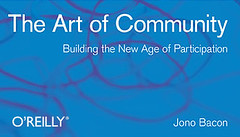 |
Art Of Community Website Button
Official button. |
| Add the following code to your website to add this button: | <a href="https://www.artofcommunityonline.org/"><img src="https://farm4.static.flickr.com/3310/3516110235_bc1c0116e2_m.jpg" alt="Art Of Community"></a> |
Thanks to everyone who was involved in making this project a reality. I am really excited about this 1st Edition and I look forward to hearing your stories about how it has helped energize your communities – do let me know! 🙂
Also, if you use IRC, do come and join us in `#artofcommunity` on `irc.freenode.net` and join in the fun. 🙂
Go and [Digg this](https://digg.com/linux_unix/The_Art_of_Community_Now_Available)!
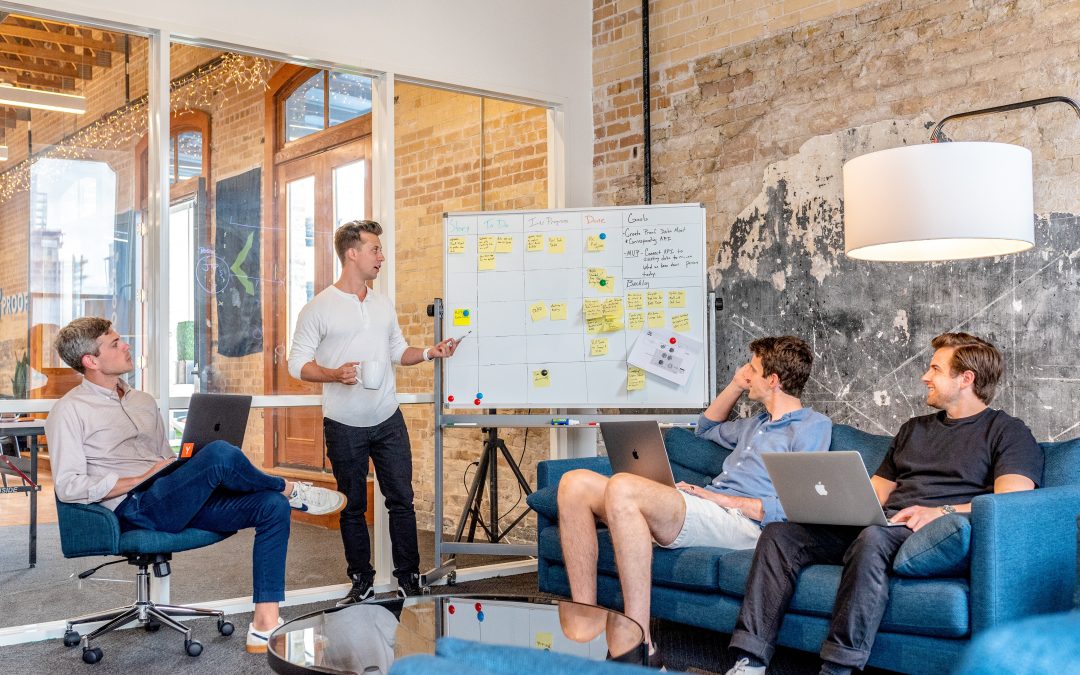
Ubuntu Developer Week Announced!
I am pleased that [Ubuntu Developer Week](https://wiki.ubuntu.com/UbuntuDeveloperWeek) is now announced and ready for the masses. The glorious week of Ubuntu development tutorials and sharing of know-how happens from **Monday, 31st August 2009** to **Friday, 4th September 2009**. You can see the timetable for the week [here](https://wiki.ubuntu.com/UbuntuDeveloperWeek). You can also go and download our new snazzy brochure for the event [here](https://people.canonical.com/~dholbach/Ubuntu_Developer_Week4.pdf) – the brochure is great for sending to and sharing with people you know in your LoCo teams, LUGs and elsewhere!
The way the week works is simple:
* Take a look at the schedule [here](https://wiki.ubuntu.com/UbuntuDeveloperWeek) and pick the session(s) you are interested in.
* For each session you want to join, join `#ubuntu-classroom` on `irc.freenode.net`.
* Feel free to ask your questions in `#ubuntu-classroom-chat`
* Have a great time learning how to make Ubuntu better and get to know our awesome community!
We have a stunning range of sessions available, including:
* Getting Started with Ubuntu Development
* Packaging Perl Modules
* Fun with Python Plasmoids
* Fixing small bugs in Ubuntu
* Kernel Triaging and Debugging
* Getting started with Launchpad development
* Hooking your app into your desktop CouchDB
* Quickly fun
* How to update a package
* Bug lifecycle, Best practices, Workflow, Tags, Upstream, Big picture
* Paper cutting 101
* Translations for developers
* Hacking Soyuz to get your builds done
* Packaging from scratch
* Fun with Python Plasmoids
Thanks to all the fantastic folks involved in making this rock: dholbach, rickspencer3, jawnsy, agateau, Riddell, ogasawara, didrocks, leonardr, bdmurray, gmb, lukasz, stuartm, aquarius, kees, jcastro, pedro_, ara, jsiegel, ted, seb128, mok0, rockstar, sbeattie, danilo, dpm, pitti, liw, james_w, Laney, noodles775, cprov and wgrant!
**[Digg this!](https://digg.com/linux_unix/Ubuntu_Developer_Week_31st_August_to_4th_September_2009)**

Reporting Ubuntu Community Problems

Recently I have been thinking a lot about how we can refine and improve how we report problems and issues in the Ubuntu community. I shared some thoughts about this [a little while back](https://archivedblog.jonobacon.com/2009/06/27/tracking-ubuntu-community-issues/) and I have been talking with many people inside the Ubuntu community, at the Community Leadership Summit, and with our Community Council and Technical Board about how to flesh out a better, more effective, and more visible process. Today I want to share the fruits of these efforts.
Before we continue I want to be clear: this is a work in progress. This is not final, it is not decided and it is not perfect. The process I am about to illustrate is a first shot that we can put into place, and at UDS I am going to schedule some sessions in which we can review and improve on the process.
The idea is simple: we want to have a place in which our community can report a problem with a community processes or infrastructure and ensure the relevant group or governance body can be assigned to tend to the issue, discuss it as part of their regular meetings and otherwise have it on their radar. The way this will work is that problems are reported as bugs in the [ubuntu-community](https://edge.launchpad.net/ubuntu-community) project and preferably assigned directly to the right group, otherwise, other people can assign the bug to the right group. What is important here is that we clearly define what kind of problems should be assigned where.
We will then work with our governance bodies to ensure that as part of their work they review these bugs and help to resolve them. I would like to encourage our governance bodies to build these bugs into their work.
The process looks like this:
### Step 1: Chose the right place to report the problem
We first need to ensure the right team in the Ubuntu project know about your problem:
* If your problem relates to *general community governance or the Community Council* then note down `communitycouncil`
* If your problem relates to *technical policies or the Technical Board* then note down `techboard`
* For **all other issues** you don’t need to note anything down.
Make a note of the team name, we will use in just a moment.
### Step 2: Report the problem
You can now provide us with some details of the problem. This involves three simple steps:
1. Middle click (or press both mouse buttons together) on [this link](https://edge.launchpad.net/ubuntu-community/+filebug).
1. You will be first asked for a *Summary*. Here type in a short and descriptive single-line summary of the problem.
1. You are next asked if your problem already exists in the system and a list of possible existing problems will be shown. You can click the arrows to show more details about each problem.
* If one of the problems describes your problem, click the *Yes this is the bug I’m trying to report* button.
* If the problem you are reporting is not in the system click the *No, I need to report a new bug* button.
1. On next page do the following:
* Type in some details about the problem in the *Further Information* box. Try to be as detailed in your description as possible.
* Click the *Extra Options* link and in the *Assign to* box write in the team name you wrote down above. If you didn’t write down a team, or you don’t know it, don’t worry, just leave this box blank.
* Finally click the *Submit bug report* button.
When your problem has been filed, you will receive an email with a link to the problem in Launchpad, and you can view that link to see the latest details about the problem.
I have documented this process [here](https://wiki.ubuntu.com/ReportingCommunityProblems) and also created two other documents which will help us improve it:
* [Best Practice](https://wiki.ubuntu.com/ReportingCommunityProblems/BestPractice) – much of what I am hoping we can achieve is building best practice around how we handle reported community problems. As an example, in some cases we will want to develop a spec or solution out of problems to help move it forward. Note down areas of best practice on this page.
* [Feedback](https://wiki.ubuntu.com/ReportingCommunityProblems/Feedback) – opinions and ideas on the process and what does and does not work can be added on this page.
As I said earlier, I am keen that we review this process at UDS and see how well it works.
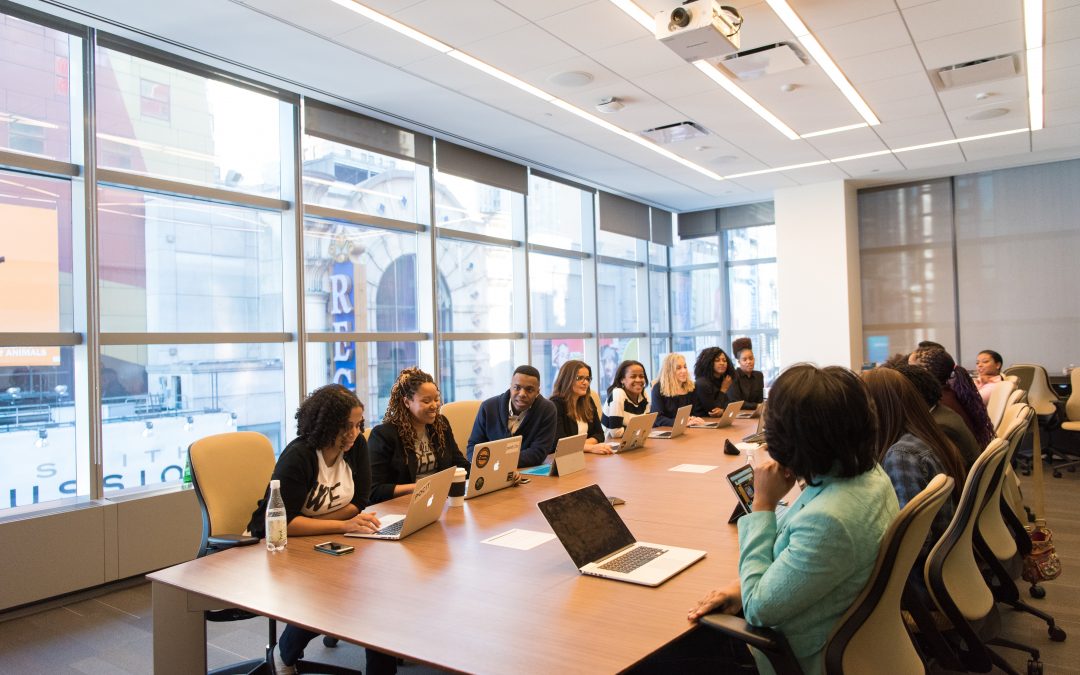
Not Going to Ohio Linux Fest Despite It Rocking Hard

Last year I keynoted [Ohio Linux Fest](). For a number of years I had been building up to going along, but every time I was set to make plans another commitment got in the way of going. I talked about this in [my new book](https://www.artofcommunityonline.org/):
> Like many folks, I have had the good fortune and opportunity to do my fair share of travel to conferences as part of my work. As a result, I have been able to experience many of the conferences I once dreamed of attending, but there were still some I never quite had a chance to get to.
> One such show was Ohio Linux Fest, a mid-sized community-run conference devoted to all things Linux and open source. I had always heard great things about the show from a member of my team and members of the community, but for some reason the Fates always conspired against me and I was busy every time the show was scheduled: I was either traveling, in meetings, on vacation, or otherwise unable to get out to Ohio. Back in early 2008, though, I received an email about the show inviting me to speak. Knowing full well that something was going to get in the way at some point in the future, I slam-dunked the dates into my calendar with a little note next to them:
> MAKE IT HAPPEN THIS TIME.
> I responded to the email expressing interest, and the organizers kindly offered me the keynote speech. Somewhat flattered at the invitation, I happily accepted.
I wish I had done the same this year. I was all set to go along but unfortunately I am not going to be able to attend. This is not because it is anything less than an awesome show, in fact it is in my list of shows that I prioritize to get along to each year, but unfortunately circumstances mean that I am busy that weekend.
So instead I just wanted to encourage you good people to go along. It is well thought out, well structured, has great content, great exhibitors, and with the exception of one of the organizers mis-intentionally planting a boot in the wedding vegetables, I had a fun and productive time at the show.
So, go [here](https://www.ohiolinux.org) to check it out and be in Ohio on from 25th – 27th Sep. Rock and roll!

Old Face Rubbish. New Face Required.
Now for a matter of national security. I got an email today saying:
> As I read your blog posts on [planet.gnome.org](https://planet.gnome.org/), my view of your words is colored by your angry faced hackergotchi. I would love to see the happier side of the Ubuntu Community Manager.
I am a pretty happy fella, but you know what, that hackergotchi is indeed a little angry. Would any of you creative types be interested in having a go at creating a new hackergotchi for me?
If so, feel free to link to your hackergotchi in the comments. Thanks!

Community Council: Why I Chose Not To Stand
Recently I had an interesting decision to consider. In an email to the Community Council, Mark Shuttleworth, the founder of the Ubuntu project nominated me for a seat on the Community Council, one of our two top-level governance boards, the other being the Ubuntu Technical Board. I was copied into an email from Mark last week informing me of his decision.
Naturally, I was flattered. I never asked to be nominated, nor expected it. Deciding whether to accept and stand for a position on the Community Council was not as simple as feeling flattered and accepting though. I had to consider whether my membership of the Community Council is going to be the best way in which I can serve the Ubuntu community well.
After a considerable amount of mulling over, I decided to kindly decline the nomination. I felt I should share how I came to this conclusion.
When I first joined Canonical as the Ubuntu Community Manager, Mark made it quite clear to me that if I would have applied to join the Community Council, he would have vetoed my application. He told me that this was not because he didn’t have confidence in my abilities to perform well in a position on the council, but that I had to rightly prove myself to the Ubuntu community, and he was also conscious that if I did join, that it could appear like Canonical was pushing forward its own employees onto our community governance bodies. His guidance and advice was absolutely the right thing to do.
That was nearly three years ago. In that time my relationship with both the Community Council and Technical Board has been informal and external, yet supportive of their work. I have subsequently found myself in a position in which I have been able to assist both governance bodies while also being an independent entity. This has resulted in me fulfilling these different roles regarding these governance bodies and the community:
* *Assistance* – I have had a close but informal relationship with the Community Council. While I am not a member, I am not on their mailing list and I am not copied into their discussions, there has been instances in which the Community Council has reached out to me for assistance to help them achieve a given task or goal. I have served a similar position with the Ubuntu Technical Board: again, while not a member of the board and not on their mailing list or copied into discussions, I have helped the Technical Board to achieve their goals, drive forward actions and otherwise be a useful participant in open discussions.
* *Independent Third Party* – as a non-member of either governance body but someone tasked with the role of helping to build a thriving participatory community, this has mean’t that I have been able to provide advice and input on the effectiveness of our governance bodies that can be considered by said bodies and if the advice is considered useful, acted upon. A good example of this is the [Technical Board Assessment](https://wiki.ubuntu.com/TechnicalBoard/JauntyAssessment) that I performed recently.
* *Informal Community Back Channel* – Another useful role that I feel I have been able to provide to the community is someone who the community can contact and share their worries and concerns with that is not an official governing body. There has been many incidents in which a community member does not want to escalate something formally to the Community Council or Technical Board but has pinged me as a intermediary to get my thoughts and advice. I *really* value being in this position with our community. I want to be someone they can approach and reach out to.
When I received the nomination from Mark last week, I considered what impact my membership of the Community Council would have on these roles that have naturally fleshed themselves out over the last few years. While on one hand I felt there were many benefits of me being a member on the council, I was also concerned that my ability to serve the community could regress in the above roles.
I mulled over this quite a bit, my hunch taking me backwards and forwards between accepting and kindly declining the nomination. I gathered advice from my team, my manager, my colleagues, other members of the Community Council, my wife and some community members. While the views were mixed in whether my membership would provide more or less benefit I came to the conclusion that it made most sense to retain my current role in the community and to kindly decline.
So there we have it. I thought it could be useful to share the thought process I went through last week and I want to thank everyone who offered their input to me and to Mark for the original nomination. Thanks everyone!

Gran Canaria Desktop Summit Thoughts
A little while back I spent some time in beautiful Gran Canaria at the inaugural [Gran Canaria Desktop Summit](https://www.grancanariadesktopsummit.org/). This was the first event of its kind to bring together developers from the two major desktops, KDE and GNOME. As the event progressed I was asking how people felt the event went, whether it was useful, what worked and what didn’t. Generally the feedback was very positive but there were some areas in which people felt it could have seen some improvements and rough edges shaved off.
I think we need to ensure this discussion first emphasizes the great achievements that the organizers made. Whenever creating a new event, the first event is always going to get some things right and identify some areas of improvement, and it is tempting to dwell only on these areas on improvement. The organizers of the summit performed a wonderful job with this first incarnation of the event, and just getting all those KDE and GNOME folks in the same town was a great achievement in itself. I want to issue my thanks to everyone involved: I felt like it was really useful and a whole lot of fun, to boot. 🙂
I have have two primary recommendations to make to the organizers:
* Firstly, I heard a lot of feedback from people saying that they enjoyed the presentations but would have liked to have had more time in discussion sessions about specific technologies. As such I would recommend that for next year, Monday to Wednesday is a traditional GUADEC/aKademy like summit in which each project has these discussions, and preferably lots of cross-desktop discussions too. These three days would also be great opportunities for hack-fests. Then on the Thursday and Friday there would be two days of presentations, similar to what we had this year at the Gran Canaria Desktop Summit. This combination of summit time and presentation time would ensure each project gets their own face time, time to show of their work and share best practise later in the week, and the evening events throughout the week should encourage cross-desktop mingling and getting-to-know-each-other time.
* Secondly, instead of having the GUADEC and aKademy tracks as there were this year, let’s have general tracks with mixed KDE, GNOME and other desktop sessions. As an example, it would be awesome to have a *Multimedia* track which could have presentations on GStreamer, Phonon, PiTiVi, AmaroK etc.
All in all I thought the Gran Canaria Desktop Summit was a stonking event, and I hope some of this feedback is useful. 🙂

Change For Change
Today I have a little story followed by an idea that I want to share with you all.
A few weeks back I stepped out to go and grab a coffee. I headed over to my local independent coffee shop where I get on well with the owners. Like many small businesses, they have been struggling in the economy and I like to show my support for them, so I am usually in there buying coffee a few times a week. Although they are always chirpy and friendly, they are regularly sharing how they wish things were a little busier. I finished nattering to them and then wandered back home, latte firmly in hand.
Like many towns, mine has a few homeless folks who are kicking around. There are three guys in particular who are always chirpy, respectful and pretty passive to passer-bys and each of which sells those newspapers designed to help homeless people earn some money. On that day I walked passed one of these guys and although he didn’t ask whether I wanted to buy his newspaper, I felt like I wanted to give him something. I grabbed $5 from my wallet and offered it to him. He was absolutely overjoyed. His eyes literally lit up when I handed it to him and he told me he had only earned a few bucks in the last few days and he was so excited. He tried to give me a newspaper, but I wanted him to keep it as I was unlikely to read it. I walked off feeling pretty pokey about making that guy’s day and musing on the fact that such a small contribution in my world could be so huge to his.
Later that day I was getting some laundry together and was emptying out the pockets in my jeans and shorts. In each there was a pocket full of random loose change, not amounting to much –just some pennies, dimes and quarters– and I put them on the dresser table…with the existing pile of loose change. I now had a pile of loose change combined from three smaller piles and I didn’t particularly want to carry it around with me. Then the dots connected. On that day I had experienced (a) a business who wants more people in there (b) local homeless folks who could use some support (c) a big pile of loose change.
This got me thinking of an idea which I have nicknamed *Change For Change*. It runs a little like this:
* A local business will choose to be a *Change Collector*. Up front in there premises and near their till they will have a big plastic jar and some signs that encourage local residents and passer-bys to throw their loose change into to contribute to a local charity or good cause.
* Said passer-bys and residents will soon know that they can get rid of their lose change there. Some may walk into the business to deposit their change and happen to pick up a product (such as a coffee in my local independent coffee shop).
* When the change jar is nearly full, the local business will take it to the bank to change it into notes and then donate the money to a local organized charity that helps *local people*. This charity could be a soup kitchen, support group, library, hospital or whatever else.
* The final step which I would love to see but I think is essential, would be that they Twitter (or maybe SMS) the gathered amount from the jar and a website will aggregate the total from all the tweets/messages to show a rolling total of all the money going to good local causes as part of the *Change For Change* scheme.
So that’s the plan. I think it could be incredible to have a scheme such as this in place, and it would be awesome to have a *Change Collector* in every neighbourhood. Just imagine the opportunities this could bring for local communities. Although I doubt most Change Collectors would be gathering oodles and oodles of cash, I think that the contributions that they do gather for charity could be enough to (a) justify their time and effort in helping a local good cause and (b) have a marked difference to the local community. Just imagine what only $100 gathered in change could mean for a soup kitchen: that could feed quite a few people. Imagine what the change could mean for a local kids charity: that $100 could buy Christmas presents for disadvantaged kids and really put a smile on their faces.
The good news is that I don’t think it would require a huge amount of work to put a plan such as this in place. It would need a website, plenty of positive advocacy to encourage people to set up as Change Collectors, and lots of awareness for people to deposit their change.
Unfortunately, I don’t have time right now to kick off another project, but if someone is excited by the idea and would like to get it into motion, I would be more than happy to weigh in and offer my input and assistance where I could. Whaddya think, Internet friends?
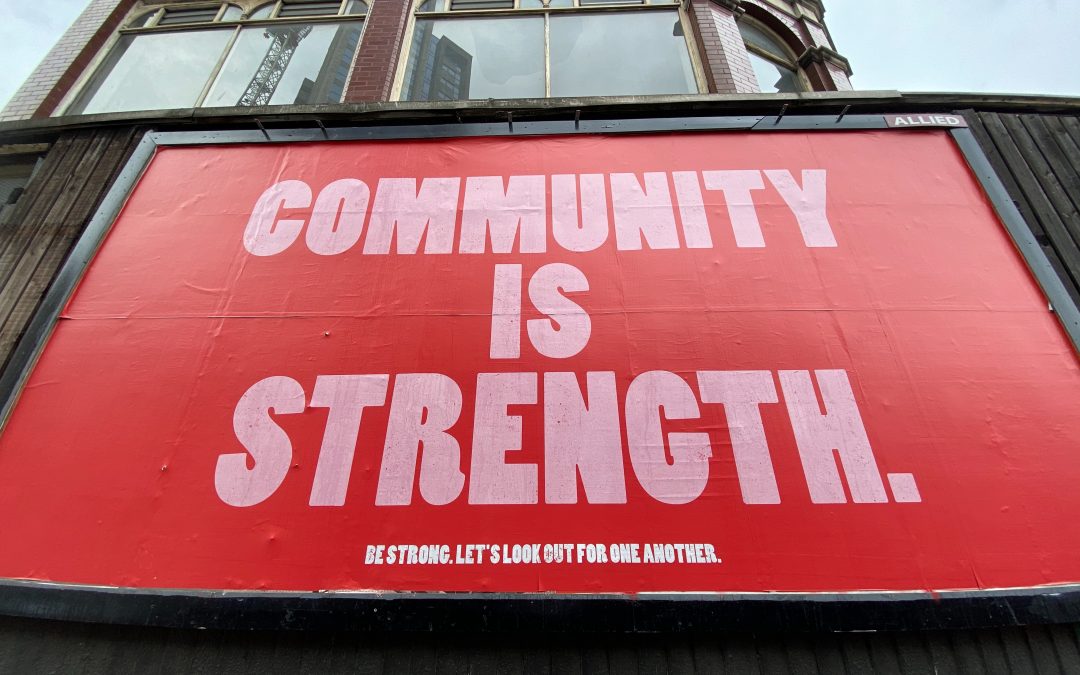
On Validation

Today I just wanted to share a few thoughts on a much under-used and sometimes overlooked component in growing great communities: *validation*.
Every community is an organically grouped bundle of people, many of which spend their free time choosing to be part of that community. With the majority of communities being associative volunteer-based groups, our contributors basically make a decision to sacrifice time with other things in their life to be around our communities. They spend their time away from their families and friends and compelling distractions in the form of video games, movies, restaurants, sports and more to help make our community that little bit more awesome than it was yesterday. In a nutshell, we should never forget the incredible contributions our volunteers make.
Often when we want to improve how our communities work we focus in on the workflow, processeses, governance and other nuts and bolts of how we collaborate together. While important, I think it is important that we don’t lose sight over one of the most fundamental elements in building great community: *validate great work*.
Every day in each of our communities we see incredible people doing incredible things. These contributions shape the very world in which we live in. They shape the things we click on, the things we listen to, the things we read and the emotions we develop from all of this and other stimulus. With such incredible people doing such incredible things, it is tempting to take a somewhat *engineering focused* approach to things: to identify areas of improvement, to draft actions and strategy, and to constantly focus on highlighting the *to-be-improved* as opposed to the *to-be-celebrated*. While this is important, it is equally important to simply tell people when they are doing a great job. They love it, you feel great for making them feel great and we all get to feel those little hairs on the back of our necks stand on end for a little while.
There are two important things to remember though when validating people. Firstly, there doesn’t need to be a reason. If your brain just randomly notices or remembers that something is great or that someone is doing a great job, go ahead and validate it. We all love validation, and a random piece of validation right out of the blue is often a welcome surprise. In fact, there has been times when I have validated someone’s work and they have responded with “*I was having a really shitty day and that was exactly what I needed to pick me up*”. We all have shitty days and we all value these pick-me-ups. Secondly, you don’t have to be well known, prominent or a leader to offer validation. Everyone and anyone can validate others: this is not a status thing, it is a *human* thing. And importantly, those who do lead and guide us need validating too. Irrespective of what we do or what we say, we are all big bags of skin and bones, we all have good and bad times, and we all feel warm and fuzzy and someone says “*you know what, I just wanted to tell you I appreciate what you do and keep up the good work*”.
So, that is all really. Lets see if each of us can ramp up how much we validate each other. There is so much awesome community work going on, there is certainly plenty to validate. 🙂

Free Books For Approved LoCo Teams

Recently I have been talking to Prentice Hall, the rather spanky-awesome publishers of [The Official Ubuntu Book](https://www.informit.com/store/product.aspx?isbn=0137021208) by Mako, Matthew Helmke and Corey Burger, and the brand new [Official Ubuntu Server Book](https://www.informit.com/store/product.aspx?isbn=0137021186) by our friend and yours, Kyle Rankin and Mako. These books were commissioned by Debra Williams-Cauley who has been awesome getting them on the shelves, and her sidekick is one Heather Fox who I have been chatting with recently to see if we can score some free copies for our rather fantastic Ubuntu LoCo Teams. Fortunately, Heather has been able to make the magic happen.
Prentice Hall are happy to send each and every *approved* LoCo team one free copy of *The Official Ubuntu Book* and one free copy of *The Official Ubuntu Server* book. To be entirely clear: this is one copy of each book per team. This will be a great addition to each team’s library of Ubuntu books!
To keep this as simple as possible, you can request your books by following these steps:
1. The team contact shown on our [LoCo Team List](https://wiki.ubuntu.com/LoCoTeamList) (and only the team contact) should send Heather Fox an email at *heather DOT fox AT pearson DOT com* and include the following details:
* Your full name.
* Which team you are from.
* Your full address (including zip/postal code, region and country).
* Your phone number, including country and area code.
2. Heather will process your application and let you know if it is approved.
3. If approved, she will get your books in the post.
A few notes:
* Only approved teams are eligible for the free copies of the books.
* Only the team contact for each team (shown on [this page](https://wiki.ubuntu.com/LoCoTeamList)) can make the request for the book.
* There is a limit of one copy of each book per approved team.
* Prentice Hall will cover postage, but not any import tax or other shipping fees.
* When you have the books, it is up to you what you do with them. We recommend you share them between members of the team. LoCo Leaders: please don’t hog them for yourselves!
* The deadline for getting your requests in **Wed 12th August 2009**.
If you have any questions or queries, *don’t* contact me or Canonical, contact Heather Fox at *heather DOT fox AT pearson DOT com*.
Also, for those teams who are not approved or yet to approved, you can still score a rather nice 35% discount on the books by registering your LoCo with the [Prentice Hall User Groups Program](https://www.informit.com/usergroups).
All in all a pretty sweet deal, methinks. Enjoy!
